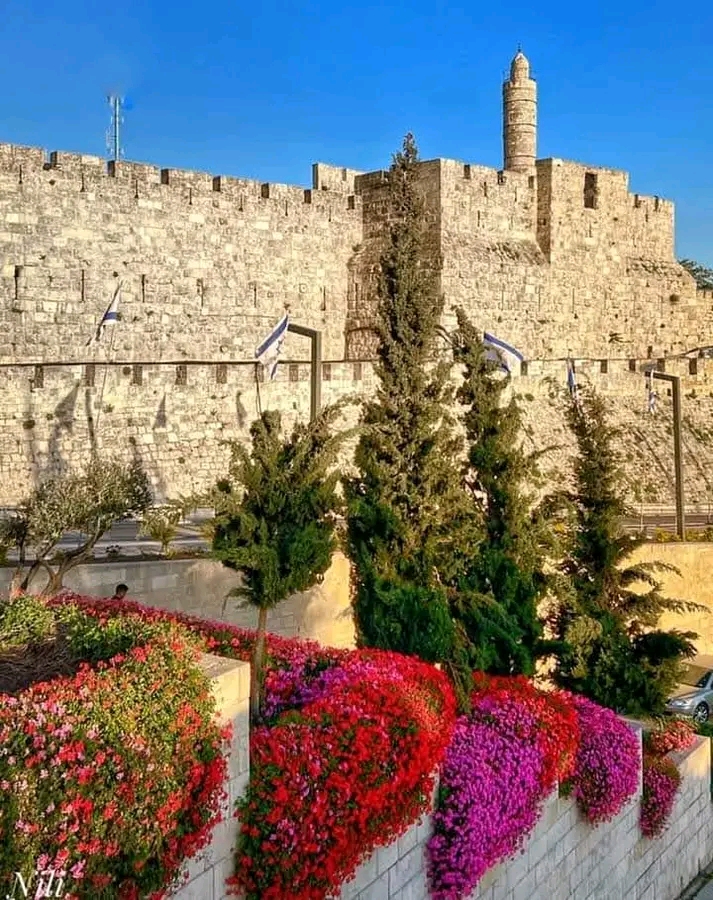Ancient Jerusalem Walls 🇮🇱🇮🇱🇮🇱
Ancient Jerusalem Walls 🇮🇱🇮🇱🇮🇱
The Walls of Ancient Jerusalem: Guardians of Jewish Identity
In the annals of history, few fortifications have symbolized resilience and faith as profoundly as the ancient walls of Jerusalem. For millennia, these formidable ramparts stood as guardians of Jewish identity, bearing witness to the triumphs and tribulations of a people bound by a shared history and a sacred connection to their land. This explores the significance of the walls of ancient Jerusalem in shaping Jewish history, identity, and spirituality.
Historical Context
The history of Jerusalem's walls dates back to antiquity, with their construction attributed to various periods and rulers, including the Israelite kings, the Hasmoneans, and Herod the Great. These walls were not merely physical barriers; they encapsulated the collective memory and aspirations of the Jewish people. The First Temple period saw the construction of the original city walls under King Solomon, symbolizing the establishment of Jerusalem as the spiritual center of Judaism.
Symbolism and Identity
The walls of Jerusalem served as a tangible expression of Jewish identity, encapsulating the essence of a people chosen by God and bound by a covenant to their ancestral homeland. Throughout history, these walls bore witness to conquests, sieges, and destruction, yet they endured as enduring symbols of Jewish resilience and determination. The act of rebuilding the walls after periods of destruction became a testament to the unwavering spirit of the Jewish people and their commitment to preserving their heritage.
Spiritual Significance
Beyond their physical presence, the walls of Jerusalem held profound spiritual significance for Jews around the world. The Western Wall, also known as the Wailing Wall, remains one of the holiest sites in Judaism, revered as the last remnant of the Second Temple and a place of pilgrimage and prayer. For centuries, Jews have turned towards Jerusalem and its walls in times of joy, sorrow, and spiritual longing, finding solace in the enduring connection to their ancient capital.
Historical Contention
The walls of Jerusalem have also been a source of contention throughout history, coveted and contested by various empires and religions. The city's strategic location made it a coveted prize for successive conquerors, leading to numerous sieges and battles over control of its walls. Despite the challenges posed by foreign dominance and occupation, the Jewish people never wavered in their reverence for Jerusalem and their determination to reclaim and rebuild its walls.
Legacy
Today, the walls of ancient Jerusalem stand as a testament to the enduring bond between the Jewish people and their ancestral homeland. While Jerusalem has undergone numerous transformations over the centuries, the walls remain a tangible link to the city's storied past and an enduring symbol of Jewish continuity and resilience. As Jews around the world continue to pray for the peace of Jerusalem, the walls stand as silent sentinels, reminding future generations of their duty to safeguard and cherish the legacy of their forebears.
The walls of ancient Jerusalem have played a central role in shaping Jewish history, identity, and spirituality. From their construction in antiquity to their continued significance in the modern era, these formidable ramparts have stood as guardians of Jewish heritage and symbols of enduring faith. As we reflect on the legacy of Jerusalem's walls, we are reminded of the timeless bond between the Jewish people and their eternal capital, and the enduring power of hope, resilience, and spiritual connection.
📸 Nilli Israel Photography
Israel - Land of milk and honey
